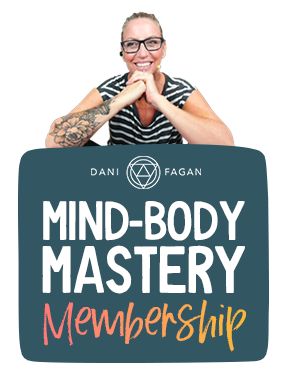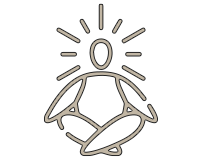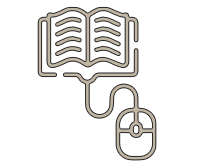Key lessons to learn and pitfalls to avoid
Recovery from a stress illness can feel daunting, it can make you feel apprehensive not knowing what will happen, when, and why. My Recovery Journey Roadmap is a good place to start understanding the mind-body connection and chronic mind-body conditions if you're not yet doing any mind-body recovery work. I compiled this list from my own experiences and those from coaching others, these points are important to understand as they will help prevent you from fighting against the way that chronic condition recovery typically flows.
Hopefully, this will answer some of the questions you might already have and settle your mind if you're experiencing fearful uncertainties.
Typical healing trajectory
Everyone's recovery will be different
The journey to understanding the mind-body connection varies significantly. Some find rapid relief, while others navigate decades of accumulated trauma, stress, and multifaceted symptoms.
Recovery timelines also differ, with some returning to their previous state within weeks, and others requiring ongoing self-awareness and management. Yet, at our core, the fundamental principles of recovery remain consistent.
We all grapple with challenges, experience worry, and suppress emotions we find difficult to confront. We share the commonality of human existence, embodied in flesh, bone, brain, and emotions, irrespective of age, background, or identity. While our individual responses differ, the underlying experience of suffering unites us.
A few suggestions
- Try not to compare yourself to anyone else and their specific timeline or journey, regardless of whether they have the same symptoms as you.
- Try not to keep tabs on yourself every day, expecting things to be better or beating yourself up if you're feeling worse.
- Celebrating your wins is a great idea, no matter how small.
- Try to surrender to the situation (I realise this is easier said than done when you're in agony...but practice every day and it will get easier) accept the fact that you are OK and well and not broken.
- Try not to force your recovery - Unfortunately, you cannot fix yourself. Your healing and recovery will be a byproduct of your emotional discovery, nervous system regulation via self-soothing and mindset changes...these cannot be controlled as much as you would love them to be.
- Try to remain free from as much expectation as possible...you're trying to calm the nervous system here, not slam it into overdrive. If you're thinking stuff like "I've been doing this work for weeks now, I should be seeing results" or "I'm going to force myself to run this marathon today because I'm refusing to accept my weakness" - can you see how these thoughts put you into a fearful/negative/full-of-expectations-and-pressure frame of mind?
- Try to reduce your hypervigilance of your symptoms.
- Befriending chronic symptoms is the goal, not ignoring them.
- Stop trying to control the outcome, let it happen as it needs to happen and accept your own pace. Giving in to how this unfolds will bring you not only lots of stress release in general but a sense of something else more powerful at work than what you're directly aware of, or in control of.
The brain science at work here is keeping your nervous system stuck in a survival state, see if you can surrender to its flow not swim against its current. Over time, you will start to become more aware of how you’re thinking and behaving. The more you surrender to this journey without judging the experience or trying to control it the better and faster your results should be.
Recovery is never linear
Understanding this can be challenging. The recovery journey often involves fluctuations, with periods of relief interspersed with setbacks. You might experience good days followed by significantly worse ones, or even a gradual improvement punctuated by unexpected relapses. However, these very fluctuations, while disheartening, are often a positive indication that your system is beginning to adapt. It signifies that the principles of mind-body healing are taking effect. Maintain your commitment.
Recognise that chronic mind-body suffering typically develops over an extended period, often years of navigating symptoms and exhausting conventional approaches. Discovering the mind-body connection can therefore feel like a final recourse, born out of deep frustration and a desire for any form of relief. Paradoxically, this point of profound desperation can be fertile ground for healing, as the absence of other viable options can foster a deeper engagement with this new perspective. So, it's crucial to acknowledge that unravelling years of accumulated protective mechanisms will naturally require time and patience.
Chronic mind-body symptoms serve as vital signals, acting like alarm bells indicating nervous system dysregulation that requires tender attention and care. Consider the common experience of unknowingly clenching your jaw for extended periods, a habitual tension that may feel deeply ingrained. Consciously releasing this tension often reveals its rapid return, highlighting the time and consistent effort needed to unlearn deeply ingrained patterns.
Read the full Recovery Journey Roadmap for more understanding of this whole process, or check out my Foundations of healing series within my Mind-Body Mastery Membership.
Resistance is normal
Showing up for yourself can be hard, starting to take care of yourself can feel alien and annoying. Not relying on a doctor to heal you with a pill is incredibly frustrating. Feeling your feelings in your Emotional Discovery whether you follow the JournalSpeak practice or not can be really uncomfortable, especially when you’re not used to it. Listening to your inner voice, or even trying to start to hear it can seem impossible. We're dealing with the subconscious mind here, and resistance to new things is totally expected.
We're attempting to break up years of conditioning and patterning, so it's normal to feel a mental temper tantrum.
You will probably feel anxious, fearful or even numb before you start attempting to do anything at all, you will find every excuse to not do it. You might be thinking you won’t be able to do it correctly, or perfectly even.
Anxiety and our perfectionistic personalities can create the illusion that there's a precise formula, a correct and incorrect way to navigate this. Letting go of this need for rigid control is an integral part of the recovery process. While the specifics of everyone's healing journey will differ, the daily act of engaging with your coping mechanisms, exploring your inner landscape through self-inquiry, incorporating mindful exposure, and utilising nervous system regulation tools (whatever your personal approach) signifies a pretty powerful triumph over mental resistance. Personally, I found it essential to treat this work with unwavering commitment (think: life or death), perhaps a little extreme, but born from a deep need to devote time to this. It became my non-negotiable path towards healing and well-being and one that I try to instill into folks I work with.
It's a fine line to walk, with enough conviction to keep going but with enough softness as not to create further friction and frustration. Remember that this is a journey you must undertake yourself, requiring consistent, loving, and gentle engagement, rather than forceful pushing.
Check out this page all about resistance to mind-body work if this is what you're experiencing.
Many people will not understand or be on-board
It has been a recurring experience when reaching out to individuals I suspect may be experiencing mind-body conditions, or when they seek my support, that sharing my recovery approach often elicits a hesitant or even a cold dismissive response.
You may have come across this too. Phrases like, "Prioritise my own needs? No thanks" or "You're saying this is all in my head?" (which of course I'm not), are pretty common. More frequently, however, the response is simply silence, a lack of acknowledgement even after offering insight and assistance. This lack of engagement prompts the question: Is this concept truly that unfamiliar?
While initially it does seem unconventional, prioritising yourself in this way yields profoundly rewarding results, extending far beyond the alleviation of symptoms. The personal growth and self-discovery that unfold through the process detailed in the Recovery Roadmap and the Mind-Body Mastery Membership are truly transformative.
I would even go so far as to say that I would recommend this work to every human on the planet, symptomatic or not.
It's life-changing in so many ways. I've seen people literally transform infont of me, I've seen symptoms disappear overnight or after an intense emotional explosion. For me, I can sincerely say that I am braver, calmer, more resilient, empathetic and accepting of myself and others than I have ever been. I feel FREE.
Check out my 'Unexpected Side Effects of JournalSpeak' article for more information on the changes I've experienced. It's changed me to my very core and introduced me to a whole heap of new things I had no idea about...and that rabbit hole is still going!
Your belief in the mind-body connection may waver
Even with a long-standing understanding of the mind-body medicine approach, witnessing its positive impact, experiencing periods of wellness, and regaining your life, it's highly likely that symptoms may occasionally resurface. That is unfortunately 100% normal and 100% expected.
In these moments, old neural pathways can easily reactivate, leading to doubt about the mind-body diagnosis and a tendency to attribute discomfort to physical causes, often prompting a return to familiar medical/healthcare routines. This cyclical nature is a common and almost predictable aspect of the recovery journey.
I can personally attest to this pattern, having experienced it more times than I'd like to admit. My initial encounter with Dr. Sarno's Healing Back Pain was a revelation, feeling like a personal narrative laid bare. The text resonated so deeply that I found myself highlighting vast sections, eventually resorting to margin markings in an attempt to capture its entirety. I was simply astounded by the insights.
Even after the "work" had demonstrably improved my condition, and despite believing in my consistency and dedication, the physical explanations would occasionally resurface. The thought, "What if it was the mattress this time?" or "Could this flare-up genuinely be my herniated discs, not TMS?" would still creep in. These moments of doubt are a normal reminder of our human tendency towards familiar explanations. They also serve as a gentle nudge to maintain the practices that have proven beneficial, perhaps with less intensity during periods of wellness, but consistently nonetheless. I've also observed how these very thoughts can trigger symptoms, shifting focus back to the physical and, predictably, the pain returns. This underscores the fundamental importance of mindset.
Check out this piece on how to overcome the fear of relapse and symptoms.
Chronic symptoms will probably get worse before they get better
This is a real turning point for many people, "if it's getting worse, then this work isn't good for me, I should stop and go back to my doctor". Familiar?
As your brain is figuring this out, you are unearthing your real emotional baggage into the light of day and your nervous system can get pretty revved up. Whilst in the midst of journaling, meditating, going back to physical activity and learning more about the mind-body connection regularly, my symptoms were having a full-blown severity circus. My main symptom flared like a raging fire and my brain was fighting back, but it didn't win.
I learned how to overcome the hypervigilance of symptoms and they finally went away. Find out more about this nervous system shake-up here.
Mind-body symptoms might change or move
As you're working your way through your own recovery journey and getting your life back, you might find that your symptoms change, just as I mentioned above they will most likely flare up even more for a while before they start to get better.
This is typical for most self-healers, with the exception of a few very lucky individuals.
I found that my back pain turned into burning sciatica for a few weeks, which were then joined by really bad eyeball headaches, where my head felt like there was a giant clamp tightening on it. I felt fatigued and just generally unwell like I was incubating the flu and my body ached. Granted, I was doing more movement like yoga and pilates as part of my exposure therapy at the time, but this pain was different, this switched itself on when I was about to journal, or an hour after I got up and my brain started firing for the day (aka my worry-wart personality was awake).
I also experience huge bouts of shaky anxiety, a harrowing feeling like something bad was about to happen. But, they didn't last very long, although awfully nauseating...the more I learned and the more I reestablished my belief in the work the more I understood that this experience was all part and parcel of this stuff working itself out.
Your brain may try to make you believe that your symptoms are physical structural issues by doing a sneaky satanic dance around your body, until (it hopes) you give up and believe it's a brain tumour (my fears were always very drastic) and go back to your "safety" pit of fear and despair. DO NOT GIVE IN!
Stand your ground to your symptoms in a firm yet accepting/loving way, try to stay calm, dial down the fear, keep your mindset on track and carry on. Keep showing up and doing the work and TRUST IN THE PROCESS.
You might become a "Student of Syptoms" instead of a student of healing
My exploration and research led me to several fantastic Facebook support groups, which I wholeheartedly recommend as valuable resources. These communities are often moderated by incredibly supportive and knowledgeable people. However, it's essential to be aware of the potential for these spaces to become an unhealthy focal point.
If your symptoms already define much of your life, becoming deeply entrenched in the pain and struggles of others within these groups could inadvertently amplify this focus. While I am dedicated to helping others navigate their recovery (as evidenced by this resource), dwelling excessively on symptom-focused narratives and the collective experience of suffering can be counterproductive. Engaging in prolonged conversations on suffering can hinder healing for both the individual and those offering support.
As an empath, I am prone to absorbing the burdens of others, which can be particularly draining when already managing personal challenges.
Be a student of healing, a student of self-growth, a student of YOU - that's magic and will really help propel you into the good stuff.
Don't stop when your chronic symptoms get better
Don't let a string of good days lull you into complacency! That feeling of "WHOOP! It's all over, burn the books and dance!" is a dangerous trap. I've been there - feeling great, ditching my self-care (journaling, meditation)... then "oops, ouch."
Remember, sustained progress isn't a finish line, it's a journey. When you feel that old familiar twinge, revisit your reminders, dust off that journal, and get back to your practices. For many of us, this will be an ongoing effort, and that's perfectly fine. Don't let good days become the reason for future flare-ups. You know the way back, you've done it before. Embrace the maintenance!
You may not realise the moment your chronic symptoms stop firing
You’ll probably realise when you have less pain, or maybe even document your good days compared to mostly bad, but if you’ve been practicing becoming indifferent to your pain and getting on with your life regardless, accepting it for what it is, that the moment when it STOPS it might just pass you by.
I remember the first time I had a significant reduction in my pain I was walking down the street and suddenly remembered. "WAIT, WHERE IS IT?" A few times I’ve had a few consecutive days of no pain and wondered what I did to switch it off and scramble through my memory tracing my steps to see what I might have done differently. But that’s the beauty of the 'being indifferent' part of this process. The less attention you give the symptoms, the more they will fade away into nothing.
Unfortunately, when you remember that they’re NOT there, they might cunningly slide back into play, but the more you practice surrendering to the fact that you’re OK, stop trying to fix it, the easier this becomes. If I wake up in the morning and feel sore, I draw the curtain on the focus, literally imagining a black curtain being drawn across those fearful thoughts, and think about something else. Usually repeating "I am fine, thanks for the message but I’m OK" a couple of times to myself, smile, breathe and it usually fades pretty quickly.
Your friends and family might not be on board
My loved ones? Let's just say they were already filing me under "eccentric" long before this. And honestly, they weren't entirely wrong! I'm pretty sure some of them raised an eyebrow or two when I declared I'd hauled myself off the sofa and out of the constant struggle they were used to.
My friends? Bless their hearts. They see the difference, the wide-eyed nods say it all. They're happy for me, but the truth is, they don't get it. I've tried the enthusiastic explanations, met with polite silence or blank stares.
But here's the absolute truth: THEIR BELIEF IS UTTERLY IRRELEVANT TO YOUR SUCCESS!
Support from family and friends would be lovely, no doubt. But sometimes, people just can't grasp what we're going through. And you know what? They don't have to. Maybe they will eventually, maybe they won't. This journey is yours, for you. Don't let their lack of understanding dim your fire. Recovery can feel solitary at times, but remember the incredible online communities brimming with support – you're far from alone. You've found something transformative here, and the urge to share is natural. Just be prepared for a little... bewilderment. Embrace your "weirdness" – I'm right there with you. Come sit with the tribe who gets it.
What worked for me might be different from what works for you
My recovery journey and the modalities I teach follow a particular narrative, mirroring the typical protocols that most chronic pain experts follow, but that might not exactly match the ones you do.
I journaled, learned, meditated, breathed and yoga'd my way out, your story might look different to this.
Your relationship with yourself will change
Building self-awareness and self-compassion are the most beautiful parts of this journey. For me, this was even more impactful than getting out of pain. You will learn so much about yourself, and your relationship with others on this journey. Try to treat yourself with as much care and patience as possible, this is not easy work but it is SO rewarding in more ways than you might realise right now...
One day, you will be grateful for your pain
I left this one for last for a reason, because when someone told me this whilst I was at my worst - it made me hate them, until I actually understood what my pain actually WAS.
How could I ever be grateful for this horrendous shitshow? It sounds nuts but it will become clearer the further you move through your journey. Try to imagine your symptoms as kind and thoughtful messengers. Your symptoms are your friend just trying to help you. Your subconscious and your nervous system don't have a voice, so they have to shout in another way.
Your pain is YOU. Your inner self, begging for attention. If you can switch your mindset from fearing it, fighting it and hating it, to caring for it and loving it, the faster you will change the trajectory of your thought patterns and unshackle yourself from chronic symptoms for good!
Imagine your pain as your inner child, that little baby-faced you, arms outstretched, begging for comfort and love. This should help you to reprogram those fearful set-in-stone neuropathways and cue the brain to ease up on the pain firing.
Try to remain open-minded, create as much calm energy within you as you can, trust in the process and keep showing up for yourself. Check out my Mind-Body Mastery Membership to dive into this work with me, and feel free to contact me with any questions you have.






